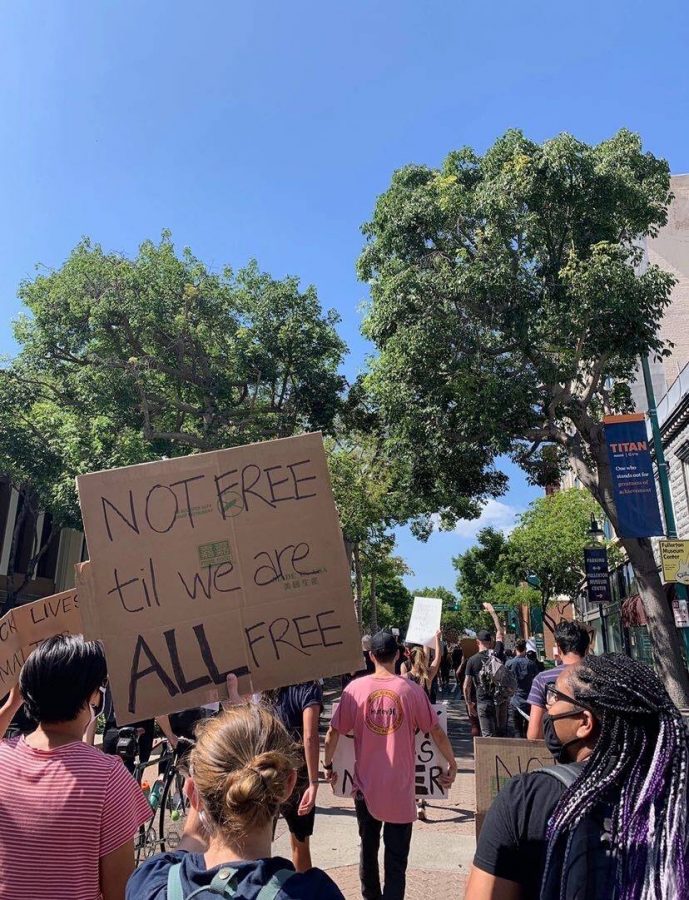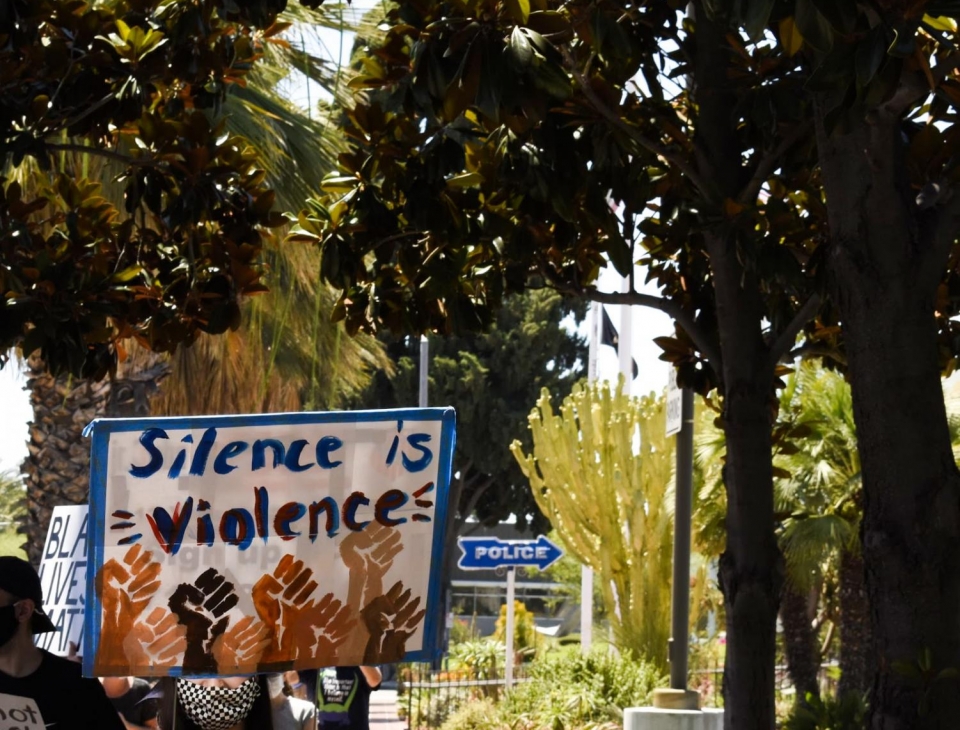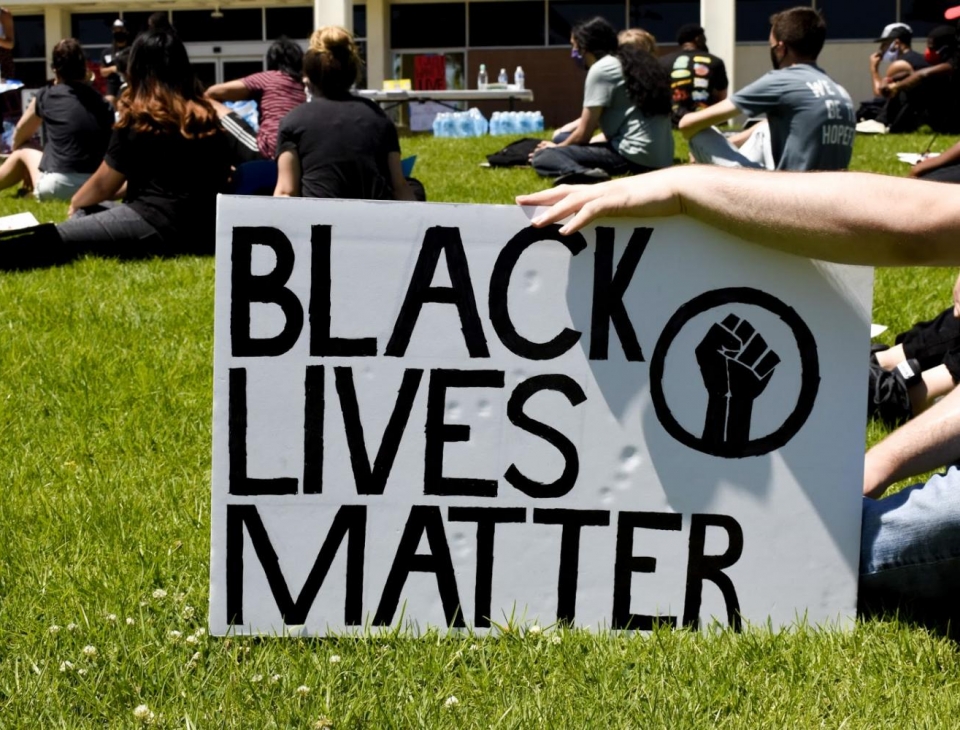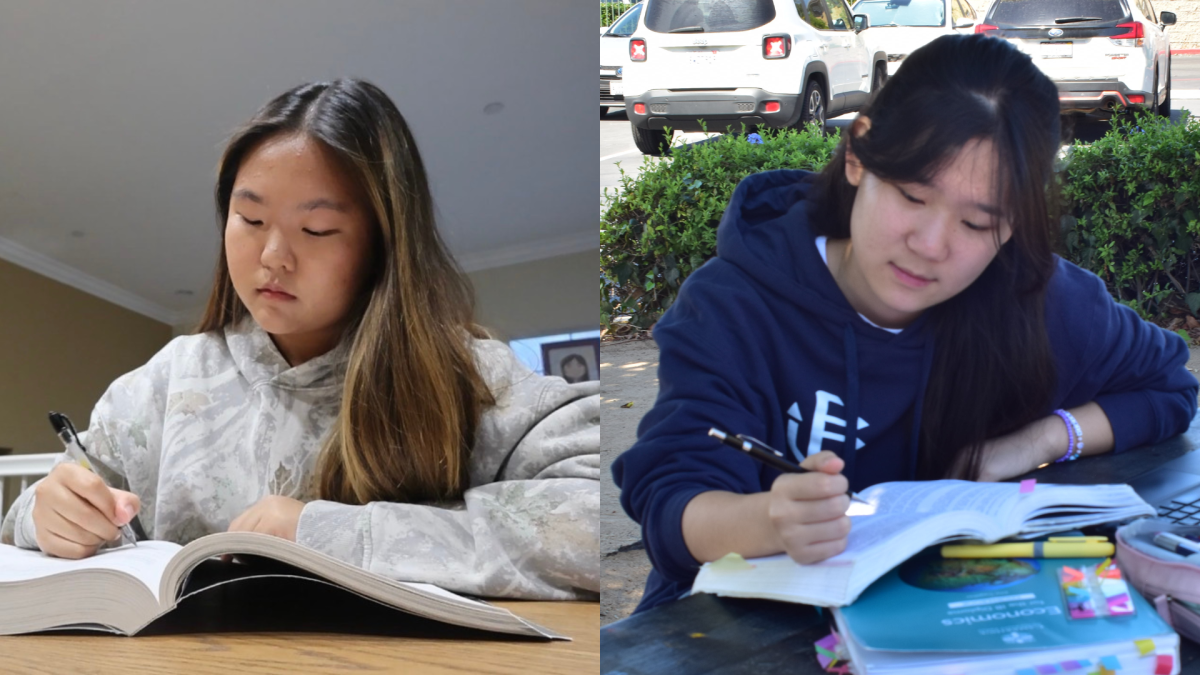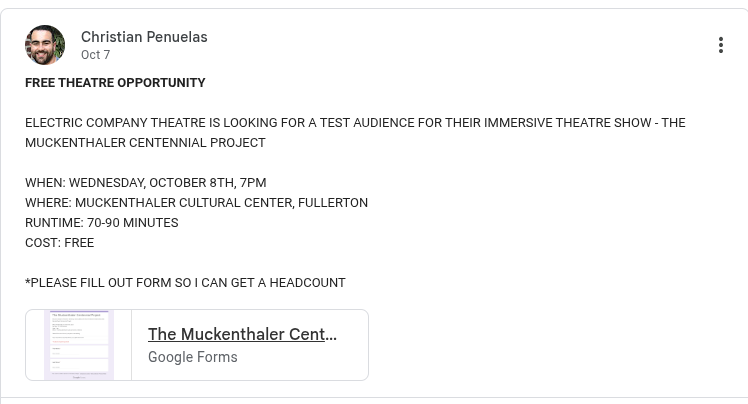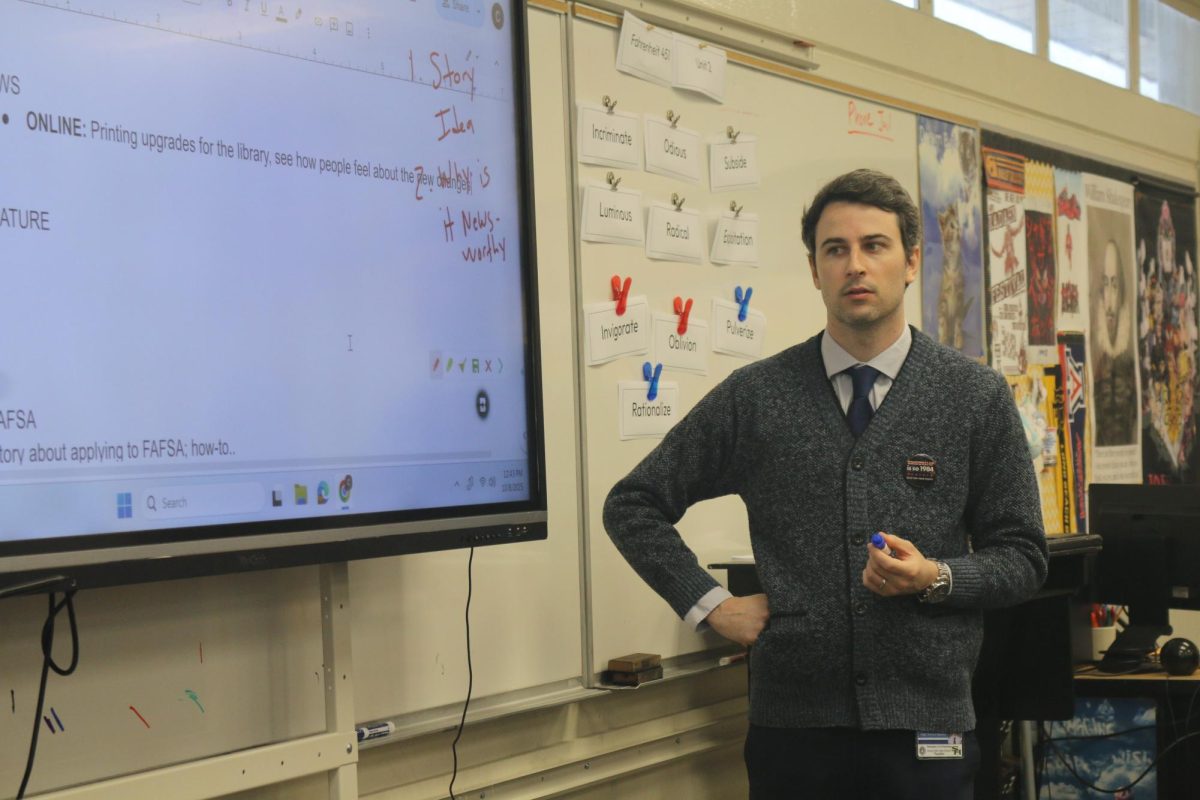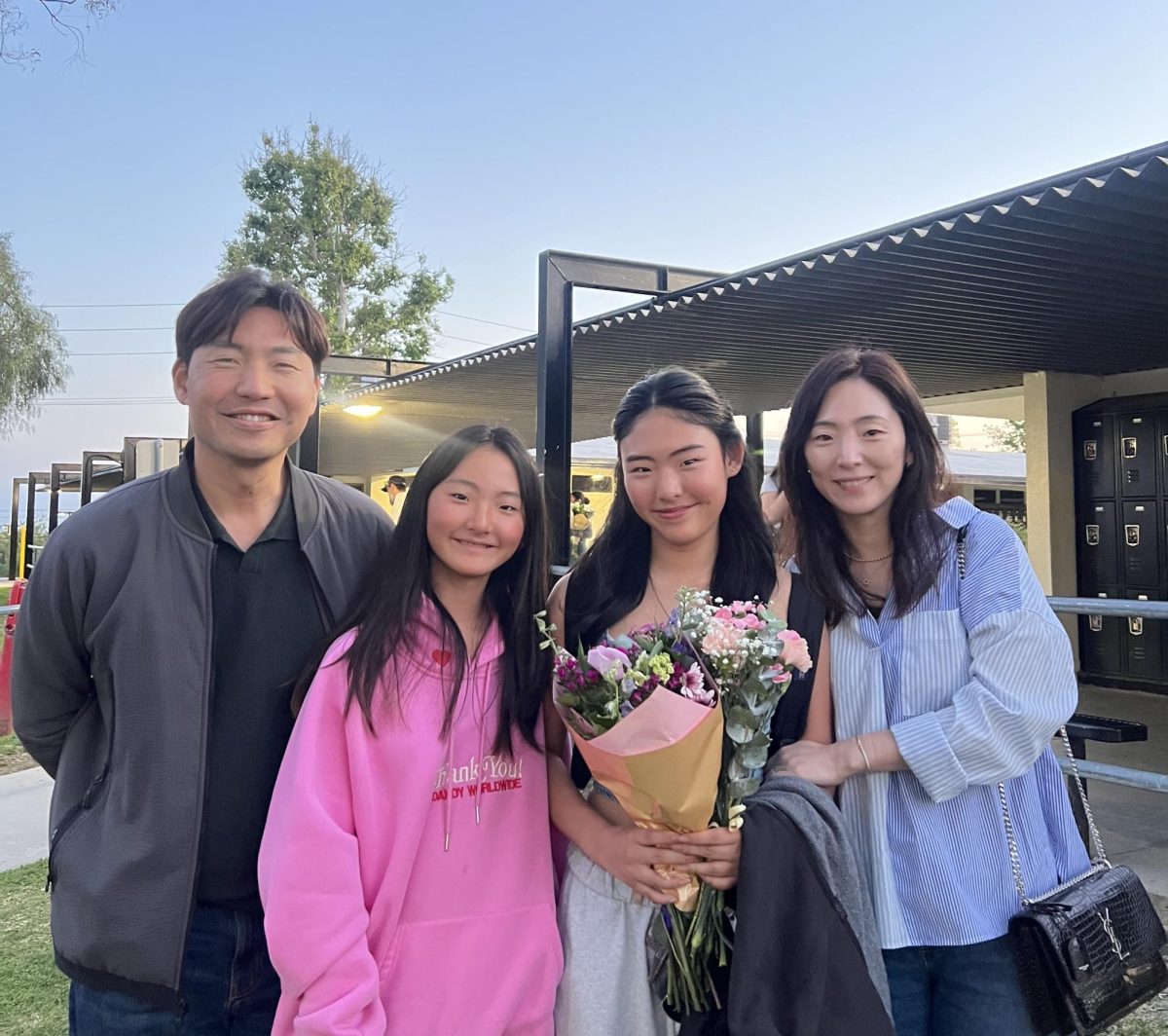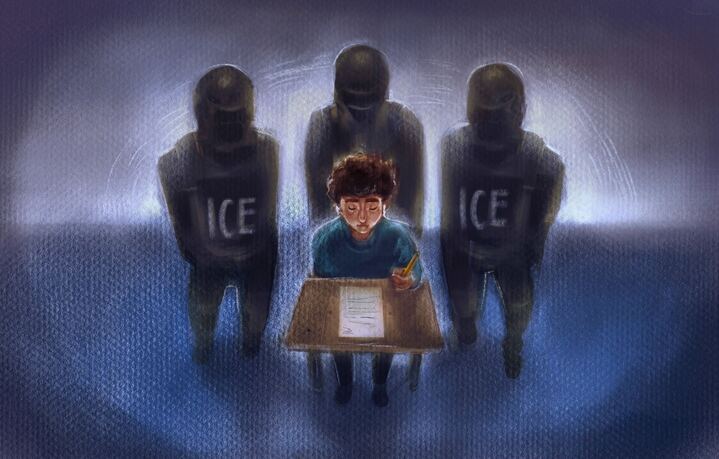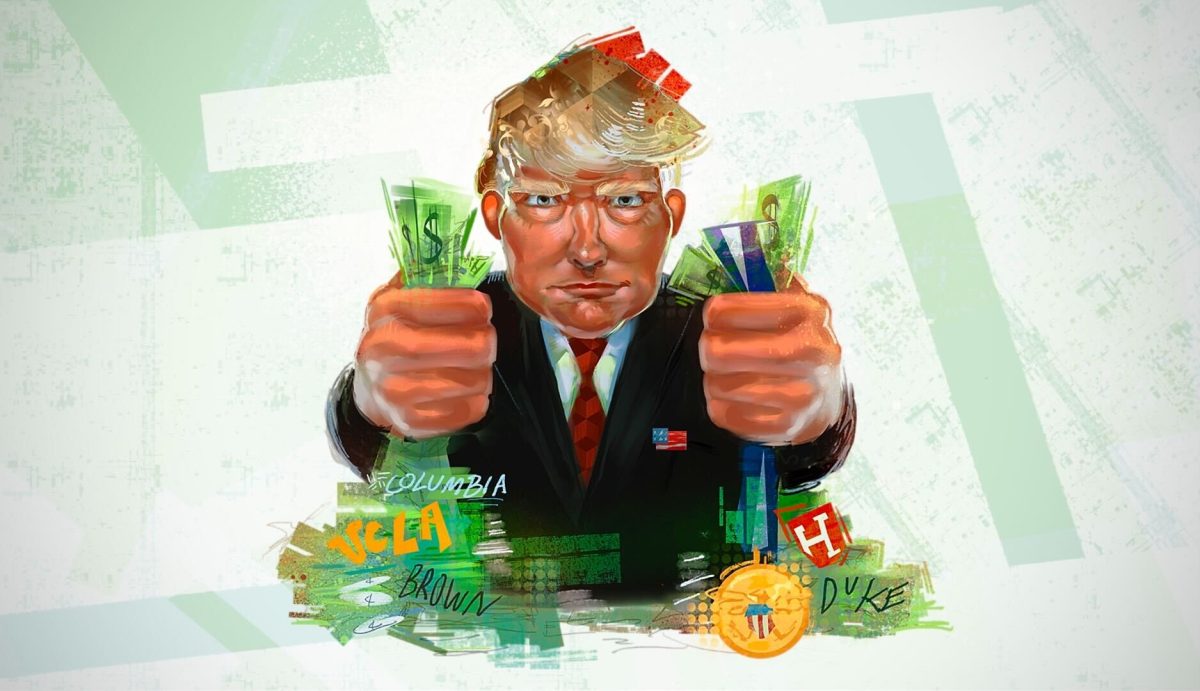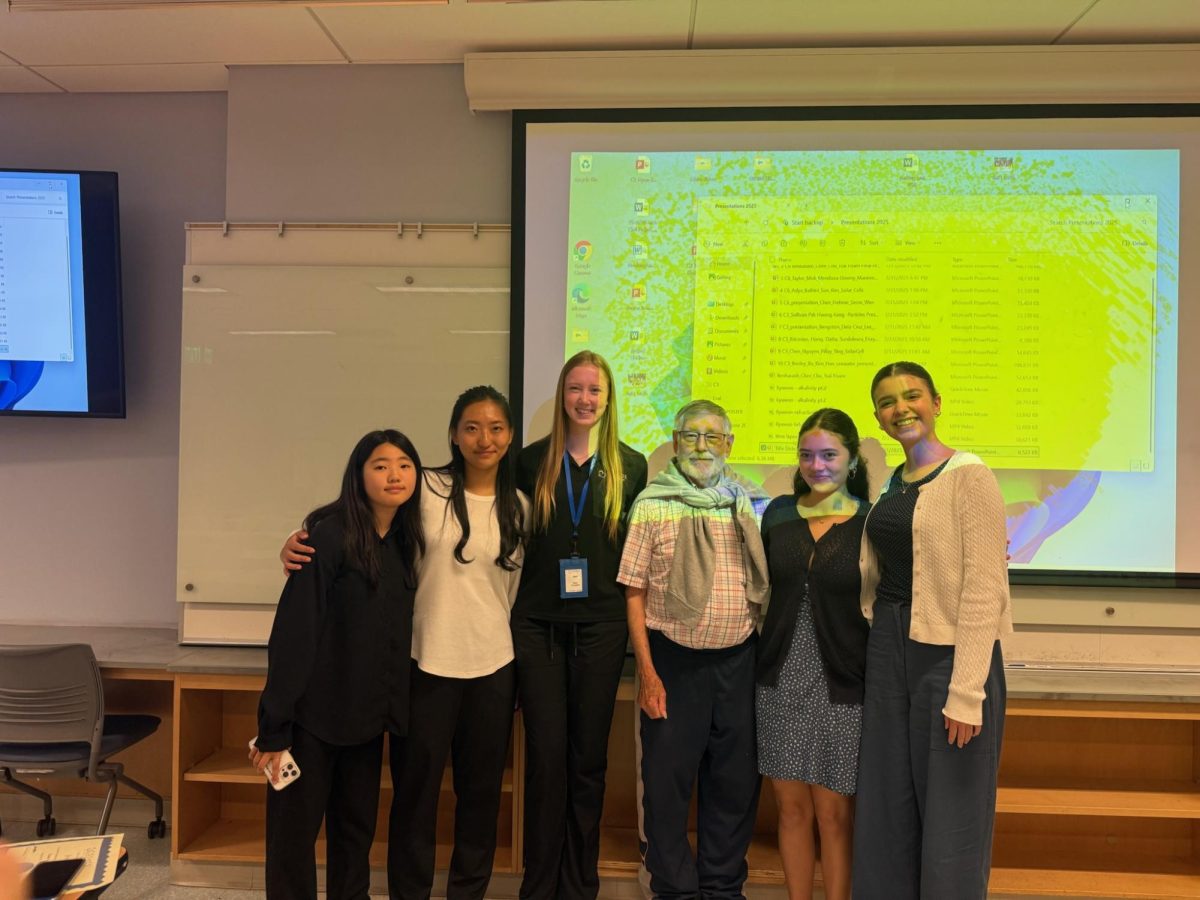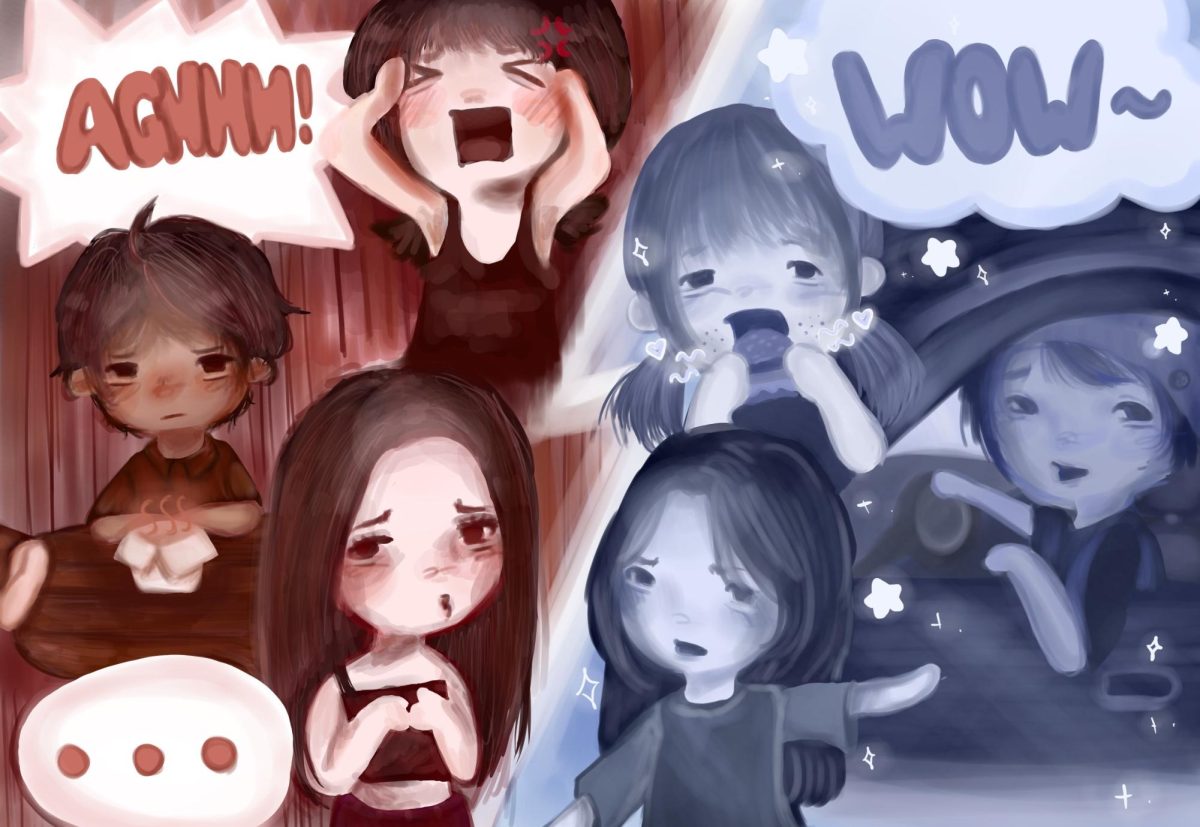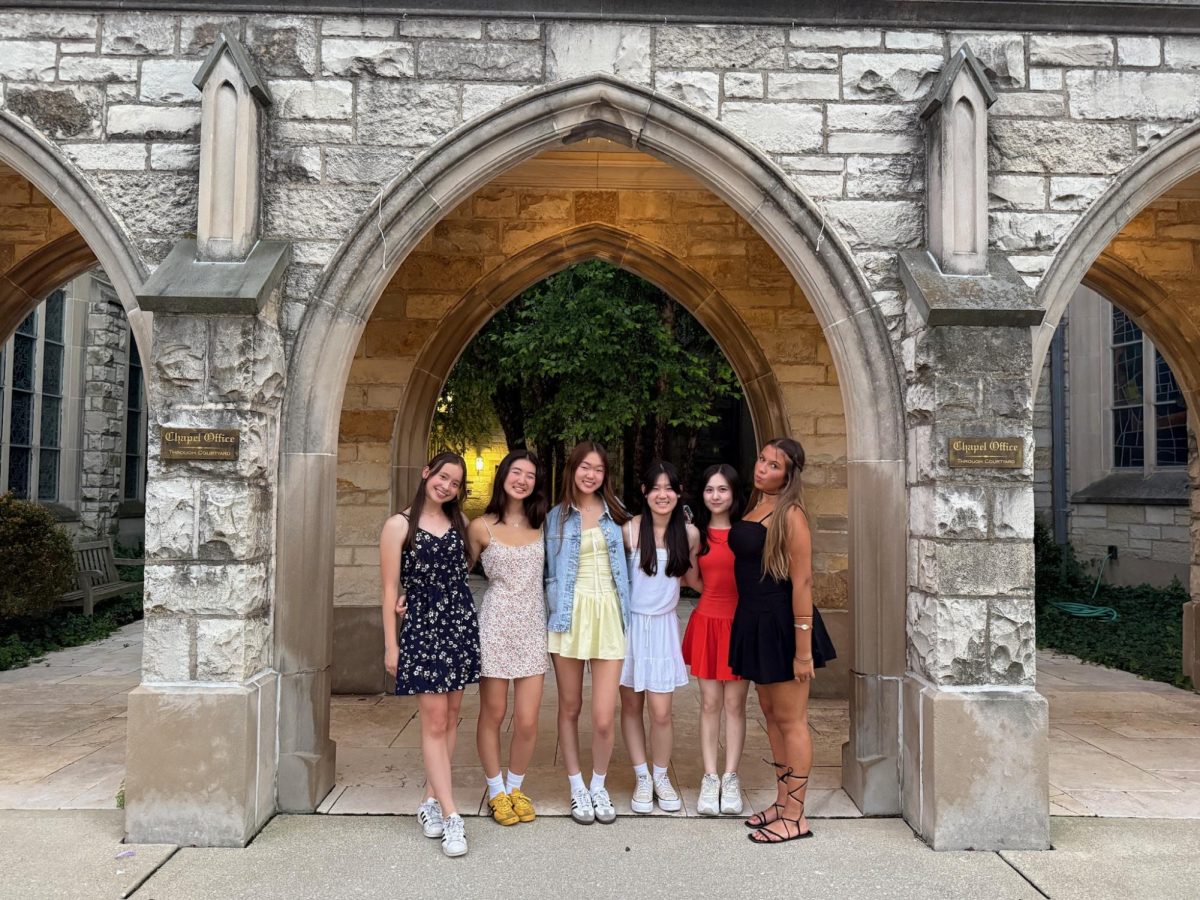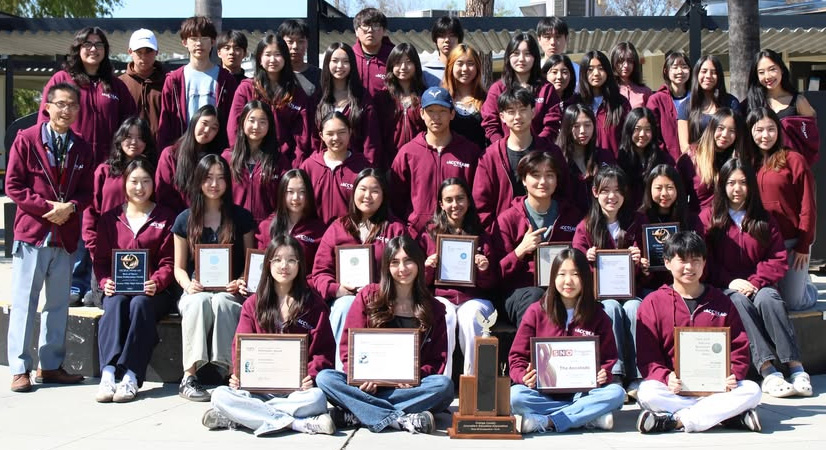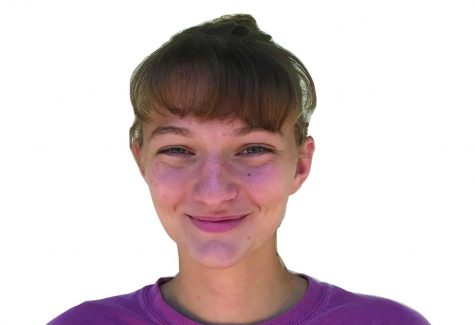I’ve never been pulled over for looking suspicious. I’ve never been called a racial slur.
I’ve never had a discussion with my parents about how to act if stopped by a police officer.
Why?
Simply put, it’s because I’m white.
Even though the civil rights movement began 66 years ago in 1954, racism and the impact of racism can be seen everywhere on a day-to-day basis, which is why it’s been 99 days since the protests started around the United States. 99 days of brutal retaliation. 99 days of crowding streets day and night. 99 days of shouting for justice.
Four years ago, the Black Lives Matter [BLM] Global Network began to organize in response to the shooting of Trayvon Martin, a 17-year-old, unarmed African American, according to the organization’s website. BLM began as a call to action against state-sanctioned violence, and in the years since, it has helped jumpstart a movement intended to create equality.
Now, in light of the alleged police-related death of George Floyd in Minnesota on May 25, the movement has taken off yet again.
Despite what the media have shown, the group of protesters I joined earlier this summer are not on the streets to topple monuments or break windows — the people responsible for the ransacking are merely taking advantage of the movement; they are not a part of it. As stated on the BLM website, the real goal is to highlight the depth of the brutality, intolerance and inequity Black people regularly experience, specifically in regards to law enforcement.
The more research I did, the more stories I heard, and the more atrocities I witnessed across social media platforms, the more I realized the numerous racial disparities that still exist across education, housing and the justice system in America. That’s why I attended two Black Lives Matter [BLM] protests this past summer.
Although I am fortunate enough to not be discriminated against for my skin color, I am aware that not everyone has that same privilege. So I tried to do my part from home by signing online petitions, calling elected representatives, spreading awareness on social media and donating to BLM organizations.
Even now, after the news stopped broadcasting the movement, I frequently look at petitions on the BLM website, Change.org, Bleu Magazine‘s website and an online Card called “Ways to Help” in search of new petitions that I can sign and send to others to sign.
While I plan to attend future demonstrations as well, I currently try to post articles, facts or videos to my Instagram account daily to keep myself and others informed.
Over the summer, I tried to attend local demonstrations, but I only discovered the first protest after my friend shared a post with me about a small group known as Upset Homegirls (@upsethomegirls on Instagram and Twitter). After that, I followed the account myself to keep updated and informed.
That’s when I saw the Homegirls were organizing a march through Downtown Fullerton on June 7 and a candlelight memorial in front of Fullerton’s City Hall on the Fourth of July. Both events followed COVID-19 safety guidelines (everyone had masks on and barely touched each other), and protesters were entirely peaceful (no one looted or damaged property).
Although my parents were initially reluctant to let me join my first protest because they had seen videos of police violently attacking protesters in such cities as Los Angeles and Washington, D.C., I won them over after having a long conversation regarding safety and the importance of speaking out.
Of the two reasons, they emphasized safety as the No. 1 priority and only allowed me to attend if I went with a friend so I wouldn’t be alone.
So with almost 2,000 people marching through the streets on June 7, we, the protesters, respectfully expressed our concerns and exercised our First Amendment right under the Constitution. Everyone — myself included — carried homemade signs made out of cardboard, wood or paper with various statements written across the front and back. The signs had messages ranging from jokes and drawings about our flawed justice system to quotes from civil rights activists and the Constitution.
However, across the rest of the country, numerous protests have severely escalated into violence and dangerous brutality. That is why we wanted to call attention to the unchecked power of the police and their military weaponry.
Fortunately, the Upset Homegirls notified the Fullerton Police Department [FPD] that we would be marching on that day, and the police did not intervene. So while I did dress in long sleeves for protection against the sun, packed lots of water to stay hydrated and brought gloves and face masks for extra coronavirus protection, I was not worried for my safety before, during or after the protest.
But, during the July 4 rally in the afternoon, the turnout was much smaller, and we encountered numerous unhappy civilians. Those of us at the protest outlined our reasons to boycott a hypocritical national holiday that celebrates America’s independence during a time period when freedom wasn’t yet bestowed upon enslaved people.
However, a few people in cars felt the need to yell derogatory comments and ignorant phrases to express their unhappiness. But, almost ironically, they only further proved that we were out there because — even to this day — some people refuse to acknowledge the racial discrepancy that still exists in the U.S. simply because it does not personally affect them.
Nonetheless, we continued the march. Instead of lighting fireworks, we lit candles in honor of all the victims of police brutality. At the end of the day, I felt we had effected change, even if it was very minimal; passersby, city hall members and police officers acknowledged the protests and our reasons for being out there — Fullerton police even posted an announcement on its Instagram thanking the protesters for their cooperation.
Although both protests were different in size, they successfully expressed the same message: Until the racial oppression and transparent exploitation of Black people are eliminated, thousands of people will continue to demand justice.
Over the past few months, this new era of impactful civil rights movements has already shed light on multiple guilty individuals and brought justice to numerous victims. While I only attended a mere two protests, I strongly encourage others to use their privilege to help others.
Because how can all lives matter if Black lives still don’t matter?


